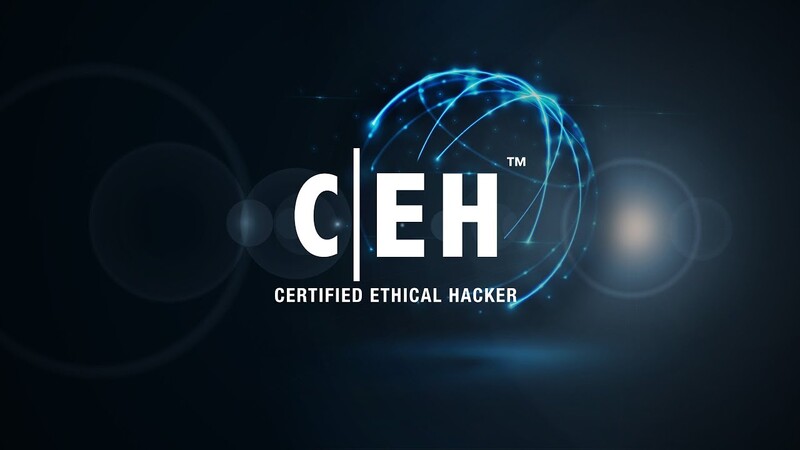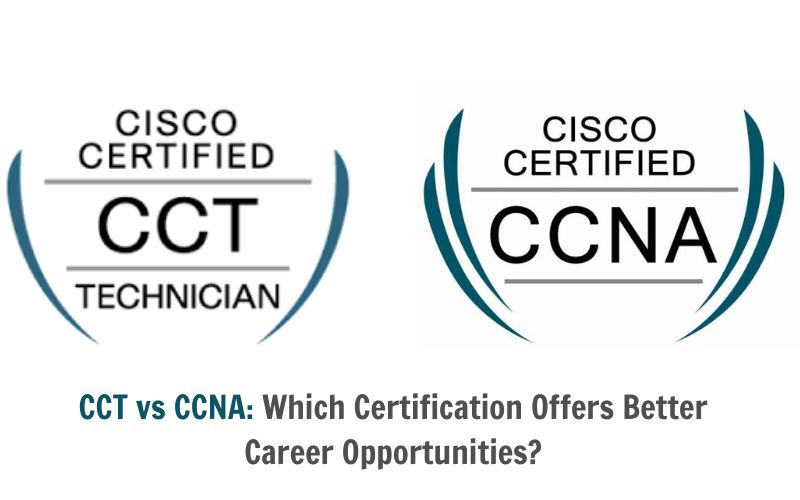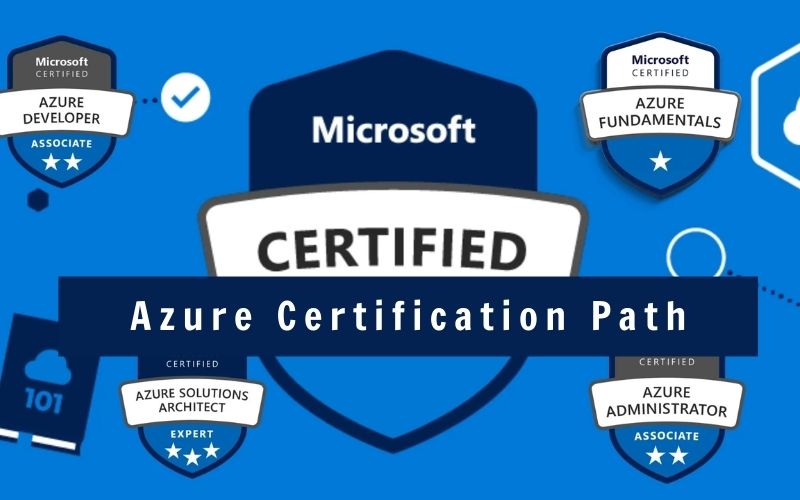Jobs in technology such as ethical hacking offer firms protection for their precious data. Because these professions deal with sensitive material, companies frequently want individuals who are trustworthy and skilled, and they may favor those with certain qualifications. If you want to work as an ethical hacker or in a similar job, you should be aware of the criteria for associated qualifications, such as the Certified Ethical Hacker (CEH) certification.
In this article, IT Exams examine the CEH certification requirements to help you prepare for the CEH exam and start your career in network security and provide a list of potential careers you can pursue with this credential.
Certified Ethical Hacker Certification
A CEH, or Certified Ethical Hacker, certification validates your ability to comprehend and apply network security procedures for elements of an organization that are linked to the internet. This might imply putting in place proactive security measures to prevent hackers from accessing sensitive data on a company’s network via malware and computer viruses. The CEH certification demonstrates to companies that you can utilize your computer programming abilities and network security expertise to prevent these assaults from occurring.
One crucial aspect of a CEH certification is that recipients agree to observe the law and an ethical code while utilizing their talents. Because many ethical hackers share comparable abilities and knowledge with criminal hackers that attack networks, the CEH certification tries to demonstrate to employers that the recipient works ethically and is trustworthy.

CEH Certification Requirements
CEH Certification Prerequisites
CEH [PRACTICAL]
There are no specific CEH requirements to take the tests. Candidates who are interested can apply by paying the relevant fees and taking the practical exam.
To begin, you can enroll in an approved EC-Council course at a licensed training facility or a recognized academic program. The CEH practical program puts your ethical hacking talents to the ultimate test. It is a 6-hour practical exam designed to assess your ethical hacking abilities. This certification validates your knowledge of all main ethical hacking subjects. In this case, you can take the EC-Council certification exam without completing the application procedure.
CEH [ANSI]
A minimum of two years of experience in data security is necessary. Furthermore, evidence of the same is required. Candidates who have attended an EC-Council authorized training center or other recognized academic institution, excluding the application procedure, are also qualified for the EC-Council test.
CEH Skill and Training Requirements
Ethical hacking necessitates a comprehensive set of technical capabilities as well as hands-on expertise in IT systems management and cybersecurity. Experts advocate a solid working understanding of Windows, Linux, and other popular operating systems, as well as familiarity with TCP/IP protocols and an aptitude for using common programming and scripting languages such as C, C++, Java, and Python, as a basis for ethical hacking. Ethical hackers must also be familiar with data storage systems, SQL programming, and computer network design.
Furthermore, ethical hackers study numerous sorts of hacks, including viruses, worms, denial-of-service (DOS) assaults, server hijacking, network scanning, and phishing, as well as how to employ various cybersecurity technologies, such as encryption protocols, firewalls, and debugging software. Finally, ethical hackers may be asked to reverse engineer various hacks in order to execute penetration testing and other diagnostic processes on an organization’s IT infrastructure.
While ethical hacking is not specifically taught in colleges and universities, bachelor’s and master’s degree programs in cybersecurity, information security, information assurance, IT systems management, and digital forensics can provide academic training in many of the skills used by ethical hackers. At the associate, bachelor’s, and master’s degree levels, studying computer science, computer programming, and/or computer engineering can give a good basis for employment in the fields of penetration testing and ethical hacking.
Other options for developing ethical hacking abilities include military training programs, tutorials given by professional organizations and commercial enterprises, and self-learning hacking skills. However, as the subject of cybersecurity has grown more professionalized, businesses are increasingly looking for applicants who have formal training in information security and ethical hacking.

CEH Certification Exam Details
The CEH test consists of 125 multiple-choice questions. The CEH test takes four hours to complete. Because all questions are multiple-choice, test takers seldom run out of time. Many candidates indicate that they only needed two to three hours to finish this exam.
EC-Council employs a variety of test formats. An exam form is a pool of questions used to deliver a test version. To guarantee that each of their numerous exam forms represents an equitable assessment of the test taker’s knowledge, EC-Council employs a technique of evaluating each question. According to post-exam reports, topics addressed include hacking tactics, scanning methodology, port scan kinds, and expected response answers. Knowing how to utilize programs like Nmap, Wireshark, Snort, OpenSSL, Netstat, and Hping is said to be beneficial for test-takers.
Individuals who have taken the exam generally indicate that it is difficult and that enough preparation is required before appearing for the exam—many individuals study for months in preparation for the CEH exam.
Successful candidates frequently indicate that a structured study schedule consisting of a few hours each day over a lengthy period of time is beneficial. Many free CEH practice exams are available online.
When taking the exam in a physical testing facility, it will be proctored by approved testing center employees. Exams are available at Pearson VUE testing facilities. Pearson VUE exam facilities are located in many of EC-Council’s Accredited Training facilities.
The CEH certification requirement for passing scores might range from 60% to 85%, depending on the exam form, or bank of questions, used for that particular exam. Because the complexity of each bank of questions varies, so does the passing score.
8 Jobs for Those with CEH Certification
Many occupations nowadays demand network security professionals perform a variety of tasks to protect the security of a company’s data and operations. The following are some network security positions with their CEH Salary for someone who meets CEH certification prerequisites, according to Indeed.com.
- Website administrator
- IT security specialist
- Cybersecurity analyst
- Information security analyst
- Network engineer
- IT auditor
- Chief information officer (CIO)
- Software architect
Website administrator
Primary responsibilities: A website administrator is in charge of the different procedures involved in building and maintaining a website for their employer. Each website an administrator manages may have different goals and uses for customers or clients depending on the company the employer runs, but the typical responsibilities of the role include designing and creating websites with code, updating websites with new features, and keeping information on the website safe with security measures.
National average salary: $54,805 per year
IT security specialist
Primary responsibilities: An IT security specialist is someone who oversees digital security. Responsibilities frequently involve examining IT systems and discovering and correcting any vulnerabilities that may exist in the system. This function entails knowing a company’s or organization’s complete IT infrastructure and frequently monitoring it for changes or suspicious behavior, upgrading security systems and software, and adopting proactive measures such as two-factor authentication and password protection.
Average annual salary: $72,059
Cybersecurity analyst
Primary responsibilities: Cybersecurity analysts assist businesses to prevent hackers from gaining access to consumer and client data. A cybersecurity analyst’s key responsibilities include reviewing and developing security processes for a company’s network, ensuring that each employee follows the right criteria for securing their information and the data they deal with and monitoring for cyber threats that might breach their security measures.
Average annual salary: $83,776
Information security analyst
Primary responsibilities: Information security analysts safeguard sensitive data on a company’s or organization’s network. To do this, they run routine checks on all workplace devices and frequently update security software, develop and assess strategies to improve computer and other device security and respond to employee inquiries regarding security issues.
Average annual salary: $88,526
Network engineer
Primary responsibilities: A network engineer designs and manages a company’s network so that it runs smoothly and effectively for employees, customers, and clients. This role’s responsibilities may include designing and developing a company’s network, maintaining and upgrading an existing network to stay current on security features and new technology, and assisting people who regularly use the network in overcoming problems and understanding how to use the network.
Average annual salary: $90,074
IT auditor
Primary responsibilities: An IT auditor is a technology consultant who examines and recommends modifications to a company’s networks and technological systems to ensure sensitive data security. These auditors undertake frequent evaluations for businesses, using predefined criteria to determine if a system is adequately safeguarded. Then they develop strategies and provide recommendations for modifications or new features that might make a system safer for employees and consumers.
Average annual salary: $101,806
Chief information officer (CIO)
Primary responsibilities: The chief information officer (CIO) is in charge of the company’s information technology, computer systems, and network upkeep. A CIO may engage with other technology and security departments inside their firm as senior official to influence their choices, analyze the level of security measures and processes, and offer software and computer updates that might improve the safety of vital corporate data.
Average annual salary: $106,022
Software architect
Primary responsibilities: A software architect is a programmer who manages many areas of a company’s software architecture. A software architect’s work is critical in technology organizations since these individuals design and build software solutions, manage team members through the process of generating essential software, and select which features to include in a new piece of software.
Average annual salary: $130,394
5 Steps to Hold a CEH Certification
Earn a related bachelor’s degree
Enroll at a university or college and pursue a bachelor’s degree in computer science, information technology, or a similar subject. Although not all coding jobs require formal schooling, a degree can help you hone your abilities and may increase the number of work prospects accessible to you. Professional experience is an important factor in obtaining your CEH certification, therefore obtaining schooling that increases your potential to find a network security job may help you achieve the certification faster.

Acquire experience
Seeking an entry-level career in network security is a critical step toward certification. Before applicants may take the test, the EC-Council, which administers it, needs two years of security experience. While you may circumvent this criterion by taking approved training classes and learning about ethical hacking and security from competent instructors, obtaining experience can still be advantageous while preparing for the exam and finding a job after receiving your certification.
Register for the exam
There are other levels of CEH tests available, but the essential prerequisites for the first level are an application through the EC-Council, proof of past experience, and an application fee. Typically, the EC-Council evaluates submissions for correctness and responds to applicants within a few days. After the EC-Council confirms your application, you can register for the CEH test and complete your preparation.
Pass the exam and earn your certification
For the CEH exam, the EC-Council provides both on-site and remote testing alternatives. Network reconnaissance, network access, network enumeration, retaining network access, and concealing evidence of a network breach are among the topics covered in the test. The test has a dynamic scoring system that takes into consideration the complexity of the randomly selected questions you answer.
Maintain your CEH certification
CEH certification is valid for three years and must be renewed after that. To satisfy the CEH certification requirement for CEH Renewal, three key ECE program criteria must be met. They are as follows:
- 120 ECE Credits Every Three Years: To renew your CEH certification, you must obtain 120 ECE credits every three years. There are several ways to obtain CEH ECE credits such as training courses, conferences, or other professional development activities.
- Submit 40 ECE Credits for Each Year of the Three-Year Period: The EC Council requires you to submit your CEH ECE credits each year of the three-year period. This is essential throughout the CEH renewal procedure. If you wait until the end of the three-year term and attempt to obtain 120 ECE credits in the last year of the CEH renewal cycle, you will almost certainly fail to renew your CEH certification. To fulfill the 120 ECE credits required to renew your CEH certification, you must earn ECE credits gradually each year.
- EC-Council Annual Membership: Since 2016, EC-Council has expected qualified professionals to be annual certified members of their organization. This is also required to renew CEH certification. The yearly membership cost is $80, and this is the only way to submit your acquired ECE credits for CEH renewal.
Tips for Preparing a CEH Exam
Practice with integrity: Independent practice may be an effective approach to hone your talents and acquire new techniques, but it must be done ethically and legally. Maintaining a clean legal record might be beneficial while looking for work as an ethical hacker.
Take practice tests: Taking practice exams helps you to see how you might fare on a CEH certification test. When feasible, try to replicate the conditions of the actual test during the practice exam, such as finishing the exam in a single sitting within the time limit.
Concentrate on areas for improvement: Identify areas of the exam where you are currently struggling and concentrate your studies on improving in those areas.
With this concentration, you may be able to boost your scores more rapidly because you have more room to grow in these areas.
Determine your individual study preferences: Because not everyone learns in the same manner, it might be good to investigate how well various strategies work for you. While one kid may gain more from reading, another may profit more from flash cards.
Consider study courses: When preparing for your CEH certification test, a formal study group may be beneficial. When studying with others preparing for the test, you may assist each other understand the content, and groups can also include a teacher with extensive expertise and experience in the field.
Frequently Asked Questions (FAQs)

Does CEH require coding?
Some techniques, like buffer overflows and XML injections, need some coding ability. To be a prospective ethical hacker, you must be able to code.
Can I take the CEH exam online?
Yes, the CEH certification exam can be taken online. However, candidates must meet certain CEH requirements, including having a webcam and microphone and ensuring their testing environment meets certain criteria.
How long does it take to prepare for the CEH certification exam?
The time required to study for the CEH certification test varies according to the individual’s expertise and background. Most applicants, however, should anticipate on devoting many weeks or months to study and preparation before sitting the test.
Is CCNA required for CEH?
If you are looking for work, you should get both qualifications. While the CEH exam covers a broad and fundamental understanding of security, the CCNA Security exam focuses on the implementation of security measures.
What is the difference between CEH and other cybersecurity certifications?
Other cybersecurity credentials may cover a larger variety of topics, but CEH certification focuses primarily on ethical hacking and penetration testing. However, CEH certification is widely regarded in the business and is acknowledged as a badge of expertise in the subject of cybersecurity by many organizations.
Conclusion
Employers want certified ethical hackers, commonly referred to as white hat hackers. Experienced IT professionals are looking at this job as a financially advantageous option; with a CEH certificate, one may make a substantial income. To become certified, individuals must meet a range of CEH certification requirements, including educational and professional experience, coursework and training, and passing a rigorous certification exam.
The industry’s biggest computer companies choose to foster ethical hacking by applauding and paying hackers who improve their systems. Apple, Google, and Amazon have a history of encouraging CEHs to breach their security measures in order to help them find security holes and promote their services. Furthermore, anyone who can uncover a flaw in these security systems is handsomely compensated by these companies!
[Sassy_Social_Share]


